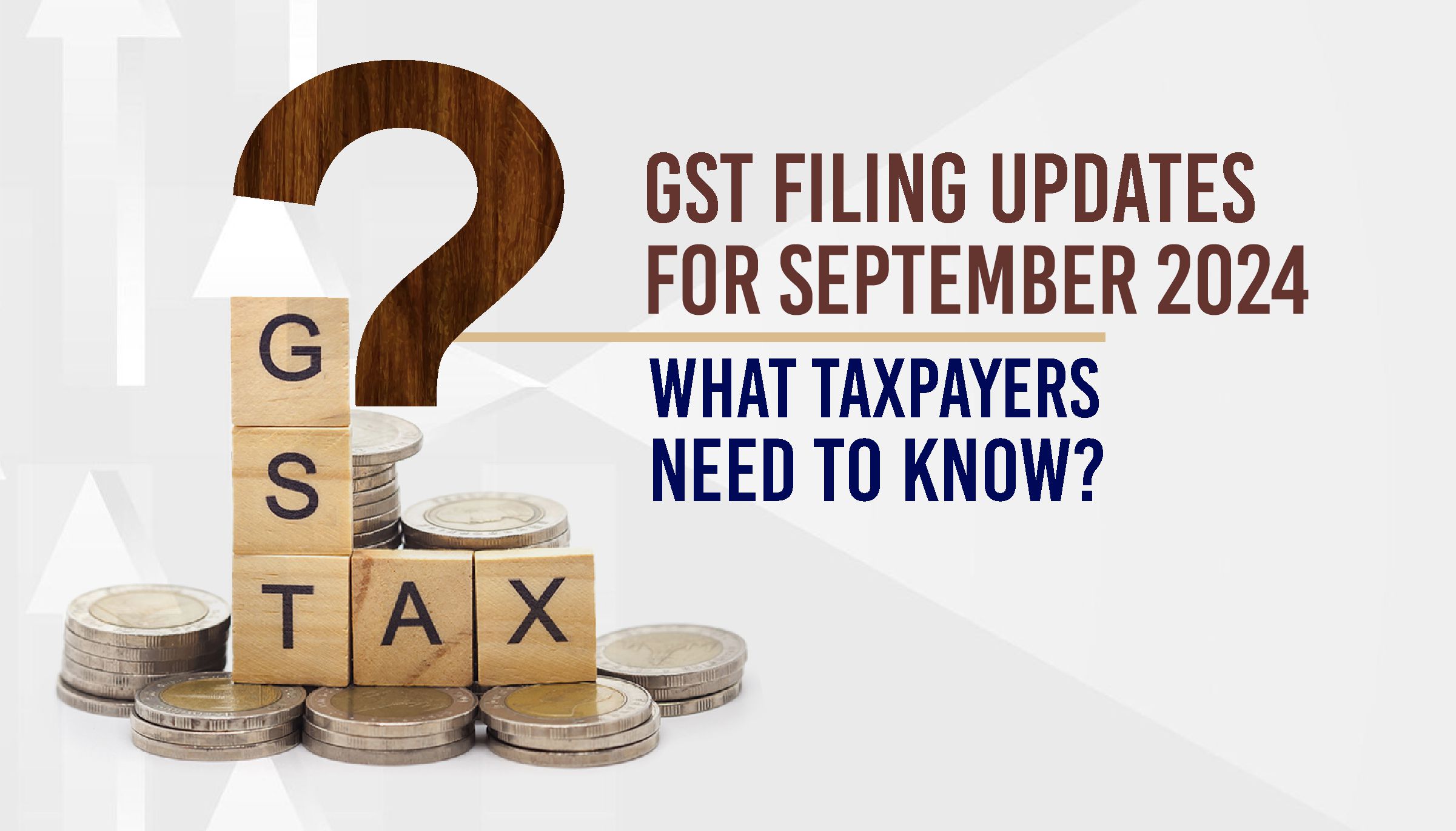September 2024 GST Filing Changes Explained

As of September 2024, taxpayers in India will have to navigate several important updates to the GST filing process. These changes are designed to improve compliance, enhance transparency, and reduce errors in tax reporting. The key updates include adjustments in the reporting of high-value transactions, mandatory validation of bank account details, and an essential update allowing the reporting of negative liability. Let’s delve into these changes and explore their implications.
1. Adjustment to Reporting of Negative Liability in GSTR-3B
What has changed?
One of the most significant updates is the ability for taxpayers to report negative liability in the updated GSTR-3B form under Table No. 3. Previously, negative liability (i.e., when a taxpayer’s GST liability for a month is less than zero) had to be recorded manually by the taxpayer, which created numerous discrepancies in return filings.
Implications of the change
Taxpayers can now carry forward and adjust any negative liability from one month to the next. This eliminates the need for manual record-keeping, which was often prone to error, and reduces the likelihood of receiving mismatch notices from tax authorities. According to Gunjan Prabhakaran, Partner & Leader of Indirect Tax at BDO India, this amendment will help minimize errors in reporting and simplify the reconciliation process for businesses.
In the previous system, manually tracking negative liabilities often led to inconsistencies between different months’ filings. This created complications during audits and frequently resulted in notices from the tax authorities demanding clarification. By allowing taxpayers to report negative values directly in GSTR-3B, the government aims to improve accuracy and reduce administrative burdens. This amendment will ease compliance by lowering the need for extensive record-keeping and reducing the number of notices sent to taxpayers. It also provides clarity to taxpayers on how to manage their GST obligations across different months without confusion.
2. Mandatory Validation of Bank Account Details in GST Registration
What has changed?
Starting September 1, 2024, it is mandatory for all taxpayers to validate their bank account details linked to their GST registration. Failure to do so will result in an inability to file returns, including GSTR-1 and the Invoice Furnishing Facility (IFF).
Implications of the change
This update is intended to bolster the security and integrity of the GST system. By requiring verified bank account details, the government aims to ensure that all registered taxpayers have genuine, traceable bank accounts. This will help in curbing fraudulent registrations and improve the accuracy of the system for tracking financial transactions.
For businesses that have yet to validate their bank details, this change may cause temporary disruptions in their filing processes. Non-compliance will result in a blockage of return submissions, which could delay tax filings and impact the overall cash flow of the business. By ensuring that bank details are validated, the government is making the system more transparent and less susceptible to fraudulent activity. However, businesses that have not yet updated their bank details must act quickly to avoid penalties and delays.
3. Reporting of High-Value Transactions
What has changed?
The government has introduced adjustments in the reporting of high-value transactions as part of the GST filing process. Although the specifics are still being clarified, the move is seen as part of a broader effort to increase transparency in high-value business transactions.
Implications of the change
This update is expected to streamline the reporting process and ensure that large transactions are accurately documented in GST filings. It may require businesses to reassess how they report certain transactions and ensure compliance with new thresholds that may be introduced. While this change is still evolving, businesses prepare for more rigorous reporting requirements. Accurate documentation and proper accounting of high-value transactions will be critical in ensuring smooth compliance and avoiding scrutiny from tax authorities.
GST Collections to Get a Further Boost
Alongside the new filing rules, the government has seen a 10% increase in gross GST collections for August 2024, amounting to ₹1.75 lakh crore. This indicates robust domestic consumption, with ₹1.25 lakh crore collected from domestic transactions (a 9.2% rise) and ₹49,976 crore from imports (a 12.1% rise). Although these figures are slightly lower than July’s ₹1.82 lakh crore, they represent significant year-on-year growth from ₹1.59 lakh crore in August 2023.
The new GST filing rules effective from September 2024 mark a critical shift in India’s tax administration framework. By addressing issues like negative liability reporting, mandating bank account validation, and tightening high-value transaction reporting, the government is aiming to create a more transparent, efficient, and secure tax system. Taxpayers are urged to familiarize themselves with these changes to ensure smooth compliance and avoid disruptions in their GST filings.
As these updates take effect, staying informed and updating internal tax processes will be essential for businesses to remain compliant and continue operating without any hiccups.
